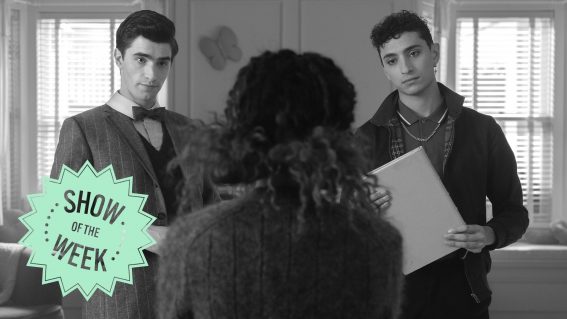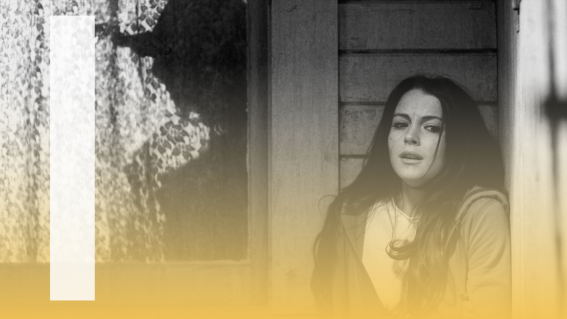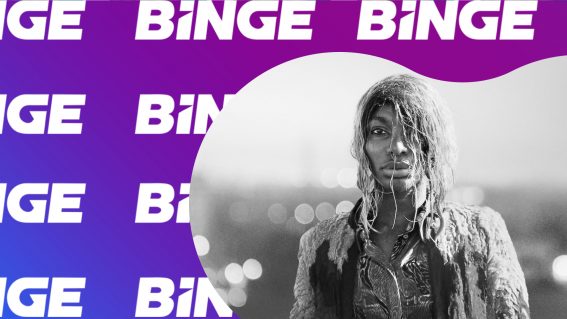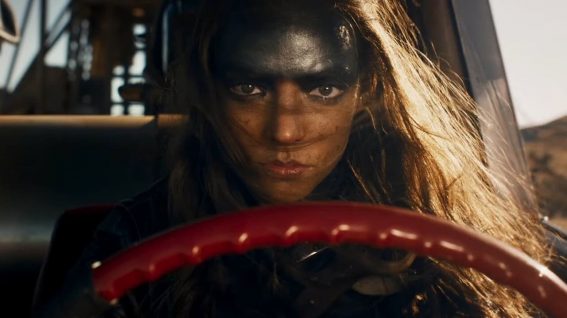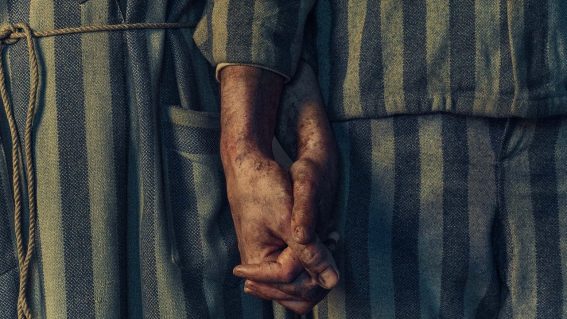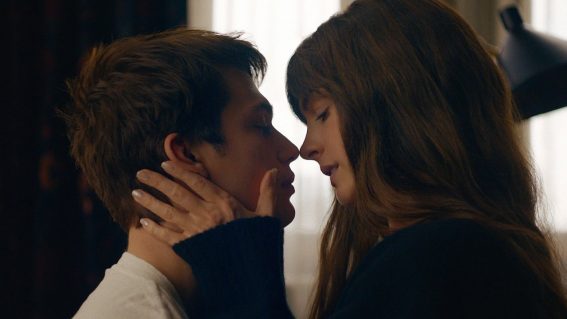Masters of the Air turns war into glamorous spectacle
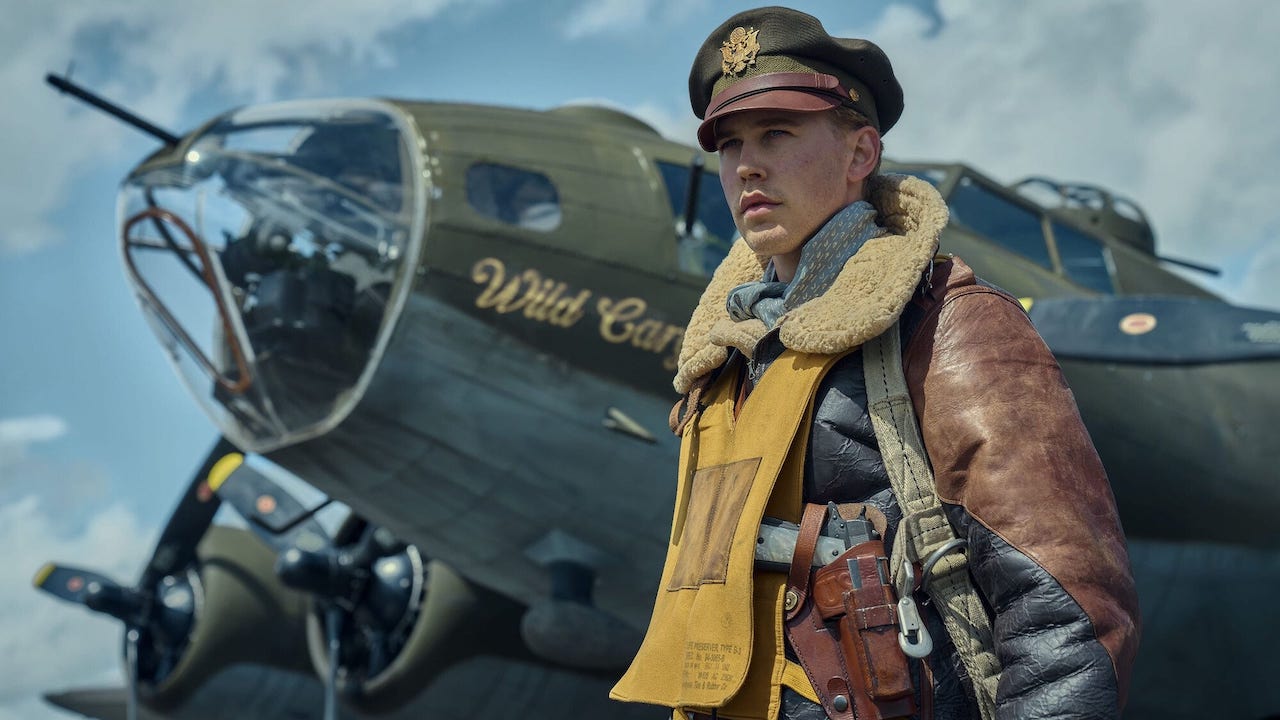
Reviewing the first episodes of Apple TV+ historical epic Masters of the Air, Luke Buckmaster says the glorious imagery, thrilling flight sequences, and—most notably—patriotism are all soaring high. Directors like Truffaut, Fuller, and Coppola would have plenty to say about it.
When we hear a line like “prepare for crash landing”—delivered, in fact, about halfway through the first episode of WWII drama Masters of the Air—we can’t help but anticipate the event. We look forward to it; the pageant of war has been recreated for our amusement. Filmmakers look forward to it too, drawn like magnets to cinematic spectacle. It’s this inclination towards visualising the smoke and fury, the bombast, the sensational stink of the battlefield that led French auteur François Truffaut to famously argue that there’s no such thing as an anti-war movie: “every film about war ends up being pro-war,” he said. The same argument of course applies to television.
Masters of the Air—a visually ravishing series that revolves around the high-flying 100th Bomb Group—got me thinking about that quote again. I’ve long agreed with the spirit of Truffaut’s argument: its implicit, cautionary message about transforming suffering into spectacle. But the discussion is complicated. Few would argue filmmakers should ignore the topic of war altogether. And what about video games, such as first-person shooters? You could argue along the same lines as Truffaut: that to simulate acts of violence is to in some way celebrate them.
In this context, the most unsettling thing about Apple TV+s new show is that it feels lifted from another era, not just in historical setting but in sensibility. The opening credits scene paints war as a great big adventure, handsome young men bravely fighting for king and country—to be valiant, to be heroes, to smile and drink and do good for the motherland, dropping bombs, dodging enemies, navigating treacherous skylines. In one shot, while a triumphant score blares on the soundtrack, a handful of children look into the clouds, their faces locked in awe and reverie. In another, a pilot exits a hangar and is literally lifted up by his colleagues; in the next, that man is in the throes of a passionate embrace with a woman.
Without entering the thorny topic of historical accuracy, it’s clear that creators John Shiban and John Orloff and the directors—including Cary Fukunaga, who helmed the first four episodes—aren’t shooting for gritty realism. Conjuring a handsome, eye-watering veneer is a much greater priority. You can see evidence of that everywhere—from glorious looking birds eye images of bombs falling to a scene in episode four, which uses an explosion-filled night sky as a lighting effect to zhush up a steamy bedroom moment. I’ve watched the first five episodes, and to say that there’s little so far in terms of anti-war messaging is an understatement.
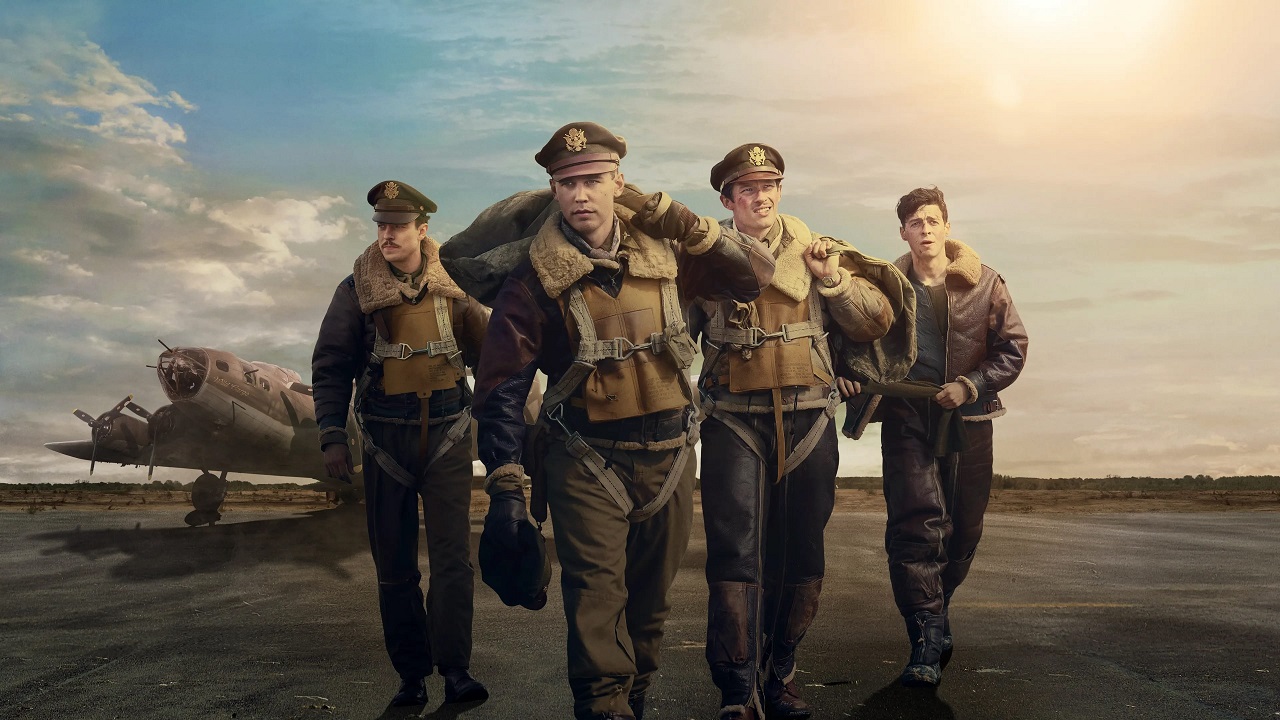
The aforementioned line, by the way—“prepare for crash landing”—is a bit of a fake-out. There wasn’t much of a crash landing. The first episode in particular has multiple moments built up and then cut off, over before they’ve really begun, increasing our desire for full-throttle spectacle. And on that front the series very much delivers. When Masters of the Air takes to the skies for real, the aerial sequences feel constructed on autopilot. Not necessarily in a bad way: they have a rhythm and pace, a to-and-fro, that feels just right, alternating between planes, pilots, and shots of the sky and ground, with a balance that’s immaculately judged, as if these scenes arrived pre-packaged, preordained. It’s much more impressive as a series about visuality rather than war per se, even if it feels a bit too clean and polished.
What would it look like with some grit, some gunk on the lens? And what would it feel like with a more pronounced anti-war message (which I assume escalates in the second half of the series—though a huge portion of the audience will stop watching before then)? War veteran and filmmaker Samuel Fuller once said that for a film to be “truly true to the actual nature of war, bullets would need to be spraying out from the screen, taking out members of the audience at random, one by one, in scattershot carnage.” Which doesn’t exactly sound like a pleasant evening.
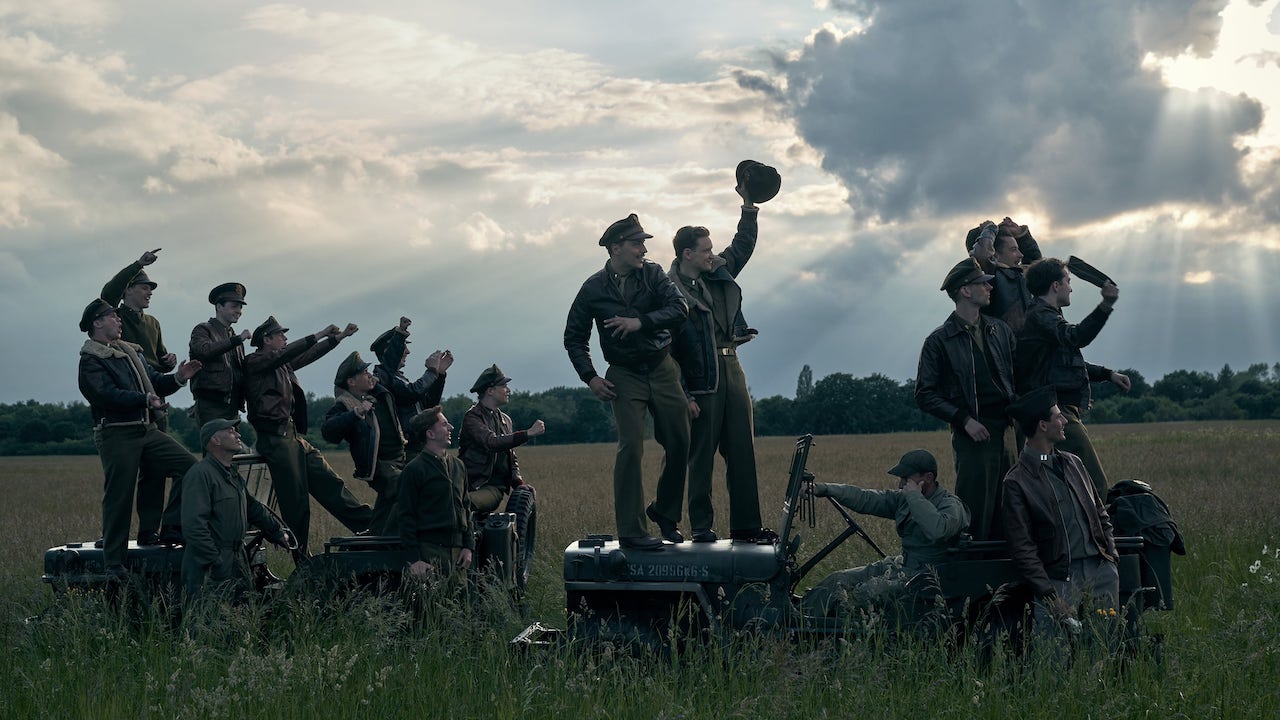
Also interesting was a comment by Francis Ford Coppola during a 2019 interview for The Guardian, hooked to the 40th anniversary of his widely exalted Apocalypse Now. Conceding that his 1979 classic is “not an anti-war film,” Coppola put forward his vision of what one would look like: “I always thought the perfect anti-war film would be a story in Iraq about a family who were going to have their daughter be married, and different relatives were going to come to the wedding. The people manage to come, maybe there’d be some dangers, but no-one would get blown up, nobody would get hurt. They would dance at the wedding. That would be an anti-war film.”
In other words, in Coppola’s view, anti-war films show us what war isn’t; what war takes away: times of mirth and merriment, the joys of living. It’s an interesting proposition, but by that definition any romantic comedy is an anti-war statement. The makers of rah-rah war productions like Masters of the Air may take some consolation from how Coppola responded when asked if he felt guilty for making a film that he himself says has “been used to rev people up to be warlike.” The director replied: “No. I don’t feel guilty, because I know my role in the whole process.”
The gang behind Masters of the Air know their role, too: to provide high-flying, bombs-a-droppin’ spectacle, vertiginous and thrilling. A powerful anti-war statement? Not so much.



